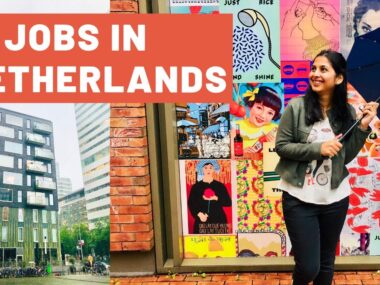HOW AI IS CHANGING JOB HUNTING IN 2025:
Future of Work
(Comprehensive Guide)
The job market is undergoing a transformation unlike anything we’ve seen before. In 2025, the rise of Artificial Intelligence (AI) is reshaping not only the way companies operate but also how individuals search for, apply to, and secure jobs. Traditional job hunting—sending resumes, waiting for calls, attending physical interviews—is evolving into a technology-driven process where algorithms, smart platforms, and digital assistants play a central role.
For job seekers, this transformation brings both opportunities and challenges. On the one hand, AI tools offer personalized job recommendations, automated resume optimization, and smart interview preparation. On the other hand, increased reliance on AI also raises concerns about fairness, bias, transparency, and competition with automated systems.
This article provides a deep dive into how AI is changing job hunting in 2025, exploring emerging tools, new hiring practices, challenges, and strategies to stay ahead in the AI-driven future of work.
1. The Evolution of Job Hunting: From Newspapers to AI
To understand the impact of AI in 2025, let’s take a quick look at the evolution of job hunting:
- Pre-2000s (Traditional Job Search): Job seekers relied on newspaper classifieds, job boards in public places, and word-of-mouth recommendations.
- 2000s (The Internet Era): Online job boards like Monster, CareerBuilder, and Indeed emerged, making it easier to apply to multiple jobs.
- 2010s (The Networking & Social Media Era): LinkedIn and other professional networking platforms transformed job searching into a social process. Employers began recruiting through referrals and digital profiles.
- 2020s (Automation & AI Era): Applicant Tracking Systems (ATS), AI-powered resume screeners, and chatbots began filtering candidates. Job seekers started facing algorithms before reaching a human recruiter.
- 2025 (The AI-First Hiring Era): AI is now deeply embedded in every stage of recruitment—from job postings to onboarding. Both job seekers and employers rely on AI to make faster, more data-driven decisions.
2. How AI is Changing Job Hunting in 2025
AI is no longer a background tool; it’s now the engine driving recruitment and job searching. Below are the most impactful changes:
a. AI-Powered Job Matching
Gone are the days of manually browsing endless job listings. AI algorithms now analyze a candidate’s skills, experiences, preferences, and career trajectory to provide highly personalized job recommendations.
- Platforms like LinkedIn AI Career Coach (2025 edition) provide daily job suggestions tailored to your skill growth.
- Recruitment AI can predict which jobs you’re most likely to land based on your past experiences and current market demand.
Impact: Job seekers waste less time, and employers receive more qualified candidates.
b. AI Resume Screeners & ATS Optimization
In 2025, over 95% of Fortune 500 companies use AI-driven Applicant Tracking Systems (ATS). These systems filter resumes based on:
- Keywords
- Skill match
- Career progression
- Soft skills inferred from writing style
New in 2025:
- AI now rewrites resumes for candidates. Tools like Rezi, Kickresume AI, and LinkedIn Auto-CV Builder generate customized resumes based on specific job descriptions.
- AI also flags missing skills and recommends certifications to improve your chances.
Impact: Candidates with AI-optimized resumes are 3–5 times more likely to pass initial screenings.
c. AI in Interview Preparation
Virtual interviews are now the standard. AI helps in:
- Mock Interview Coaching: AI bots like Google Interview Warm-Up simulate real interview scenarios and give instant feedback on tone, clarity, and content.
- Facial & Voice Analysis: Employers use AI to evaluate communication skills, confidence, and even emotional intelligence through video responses.
- Customized Q&A: AI analyzes job descriptions and generates likely interview questions.
Impact: Candidates who train with AI have a 40% higher success rate in landing second interviews.
d. AI Recruiters & Chatbots
In 2025, many companies use AI recruiters instead of human ones for first-round hiring. AI chatbots now:
- Answer candidate queries about company culture, benefits, or application status.
- Conduct pre-screening interviews via voice or chat.
- Schedule interviews and send reminders.
Impact: The hiring process is faster, but job seekers must adapt to “conversing with bots” as their first interaction with employers.
e. AI Skill Assessment & Gamified Testing
Employers now use AI-driven skill assessments to measure practical abilities.
- Gamified Platforms: Coding tests, problem-solving games, and real-world scenarios are analyzed by AI to score candidates.
- Skill Gaps Analysis: AI platforms suggest upskilling paths if candidates lack certain abilities.
Impact: Practical skills now weigh as much as (or even more than) traditional degrees.
f. AI Career Coaching & Guidance
AI is not just for employers; job seekers benefit too:
- AI Career Advisors suggest which industries are growing, what certifications to pursue, and which skills will be in demand.
- Platforms like Coursera AI Coach now recommend personalized learning paths.
- AI networking tools suggest who to connect with on LinkedIn to improve career opportunities.
3. The Benefits of AI in Job Hunting
AI is not only transforming recruitment but also creating significant advantages for job seekers:
- Personalized Job Search – More relevant opportunities tailored to your profile.
- Faster Applications – Automated resume customization saves time.
- Better Preparation – Mock AI interviews help candidates feel confident.
- Upskilling Recommendations – AI tells you exactly what to learn to stay competitive.
- Reduced Human Bias – Ideally, AI recruitment reduces discrimination (though bias in algorithms still exists).
- Global Opportunities – AI allows remote job seekers to access international roles easily.
4. Challenges and Risks of AI in Job Hunting
However, the rise of AI also comes with challenges:
- Algorithmic Bias: If AI is trained on biased data, it can replicate discrimination (e.g., gender, race, location).
- Over-Optimization: Candidates may “game the system” by stuffing resumes with keywords.
- Human Connection Loss: Applicants often feel dehumanized when interacting with bots.
- Privacy Concerns: AI collects vast amounts of personal and behavioral data.
- Competition with AI Tools: Candidates using advanced AI tools (for resumes, cover letters, interview prep) may have an unfair advantage.
- Skill Obsolescence: With automation, some roles are disappearing, forcing job seekers to constantly upskill.
5. The Role of Employers: How Companies Use AI in Hiring
Employers in 2025 are deeply invested in AI hiring technologies:
- Smart Talent Acquisition Platforms: Companies like SAP SuccessFactors and Workday use AI to reduce hiring time.
- Diversity Recruitment AI: Tools that balance candidate pools by removing identifying data to reduce bias.
- Predictive Analytics: AI predicts which candidates will stay longer in a company.
- Onboarding Automation: AI speeds up orientation, document verification, and training.
Impact: Companies save time, cut costs, and improve retention—but must balance efficiency with fairness.
6. The Future of Job Hunting (2025–2030)
Looking ahead, AI’s role in recruitment will expand:
- AI-Generated Jobs: Entirely new roles (AI ethicists, prompt engineers, algorithm auditors).
- Metaverse Interviews: Virtual reality job fairs and interviews.
- Blockchain Resumes: Secure, tamper-proof digital credentials verified by AI.
- Hyper-Personalized Career Paths: AI will map out 5–10 year career projections for individuals.
- Global Remote Marketplaces: AI will connect workers to companies worldwide, regardless of borders.
7. How Job Seekers Can Adapt in 2025
To stay competitive, job seekers must:
- Leverage AI Tools: Use AI for resumes, cover letters, and mock interviews.
- Focus on Human Skills: Emotional intelligence, leadership, and creativity are harder for AI to replace.
- Upskill Continuously: Stay updated with certifications in AI, cloud computing, cybersecurity, digital marketing, etc.
- Build a Strong Online Presence: Keep LinkedIn, portfolios, and digital profiles AI-friendly.
- Practice Ethical Job Hunting: Avoid over-relying on AI-generated content—authenticity still matters.
Conclusion
By 2025, AI has become the gatekeeper of job opportunities. From AI-powered job matching to automated interviews and predictive hiring, artificial intelligence is deeply embedded in the job market. For job seekers, this shift means learning to adapt, mastering AI tools, and focusing on human-centered skills that technology cannot replicate.
The future of job hunting is AI-driven, but it’s not about humans being replaced—it’s about humans working alongside AI to unlock new opportunities, speed up hiring processes, and build careers in a rapidly changing digital economy.
The key to success in 2025 and beyond lies in embracing AI as a partner, not a threat, and staying agile, skilled, and adaptive in the evolving world of work.
![]()

